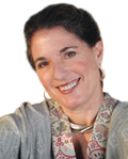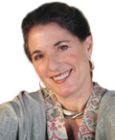
Midlife
Mid-Life Crisis-Myth or Reality? Turning Crisis into Wisdom
Mid-Life Crisis-Myth or Reality?
Turning Crisis into Wisdom
Posted March 12, 2011
Growing up in the 60s and as a student of Jean-Paul Sartre and Simone de Beauvoir, I was sure that I-and each human being-was unique. I resisted theories of developmental psychology or any suggestion that my issues were "age-related."
Many years later, I look back upon my 30s, my 50s, and even now my 60s, and cannot escape the patterns. Yes, I'm unique-but my issues also live in the context of their times and across others of my age. At this point in time, the rich complexity of uniqueness/commonality is comforting and feels like a doorway into wisdom. At each decade I ask myself-and those with whom I work-"How am I unique, and how do I correspond to the developmental issues of others my own age?"
The following excerpt is from a client, Jeff Weinberger, who had just confronted turning 50. His reflection below is a good example of one man's understanding of his uniqueness and of his commonality with all others. Jeff has given permission to include his identity in this blog so that his story may serve as a model to help others begin their own journeys toward midlife self-acceptance:
I am not 30.
No matter what my friends (or your friends) say, 50 is not the new 30 (or 40, or even 49). 50 is 50. Period. It's not like 30 or 40. Those decades had their own unique challenges and opportunities, as does this one.
I turned 50 a few weeks ago, and as I relaxed at home after a weekend of celebration, I realized I had suddenly arrived on something like a new plateau.
This is not a mid-life crisis. In fact I don't think (at least I hope) that I ever will have one of those: http://posterous.jeffweinberger.com/mid-life-without-the-crisis]). It's turning out to be a new perspective on my life and the world that surrounds me.
It is a new so-called life-stage. And I'm just starting the journey of learning a few things about being a 50-something (besides that I'm now eligible for AARP membership).
- I know more about how to get where I want to go. I don't know everything - I hope not! - but I do know more than I did, and more than at any prior age (obviously!), about how the proverbial game is played, and how I can tilt the outcome more in my favor. I may not win (as one of my favorite t-shirts ever read: "He who dies with the most toys, wins"), but I can certainly do a better job with the tools now available to me of ending up where I want to be.
- I am turning into Popeye ("I am what I am"). Or at least I'm becoming more secure in who I am, who I've become in the past 50 years and how I want to become a better me (notice, not become something else) for the next 10-20-30-more years. This has also led to far less conflict in my life - I'm so much more comfortable ceding ground to others that I never wanted anyway. I just needed to learn that I never wanted it.
- There are more younger people in my life. Of course, but it may not seem obvious that the overall average age of the people in the room (business, social, whatever room you're in) hasn't changed - you've just gotten older. I've noticed that more of my new friends and associates are younger than I, where there used to be a more even division of age. I'm now the older, more-experienced guy. That's nice in and of itself, but the other benefit is that all these new young associates and friends challenge me, teach me and keep me on my toes.
- I'm learning to live with new realities. I am - thankfully - suffering no serious physical challenges, but I do find that I don't have some of the physical capacity I once did. I can't always improve every statistic of my workout. I can't always be faster or stronger than anyone else I choose to compare myself to. It's starting to give me a longer-term, more balanced perspective on my own capability. I have started to think in terms of what performing well means, and how to keep challenging myself through variety rather than through linear progress. I think it's going to keep the physical condition aspects of my life quite interesting.
- I've given myself permission to be honest. In my teens, 20s and 30s, I was always trying to prove that I had it all under control and built a facade to help make others believe that and be impressed. But it was a fraud. I knew I had hard, deep, challenging questions. When I started opening up and telling people about my challenges and questions, I found out not only was I not alone, but that I gained more respect for honesty than I ever did for the facade. Plus I've developed deeper, better relationships as a result, and the people around me value me for the real, not perceived, me. Living and loving life comes with hard questions; being honest about it makes it easier - whether I deal with them or not.
- I'm new to this. I've only been 50 for a few weeks, but it's crystal clear to me that there's a new life-stage starting, with a set of new perspectives, better tools and knowledge and, I hope, a lot more fun, growth and learning ahead.
I don't know where it will take me (maybe I should write down now what I plan to say when I turn 60?), but it promises to be the best decade I've had yet - and I don't think I could ask for more than that.



